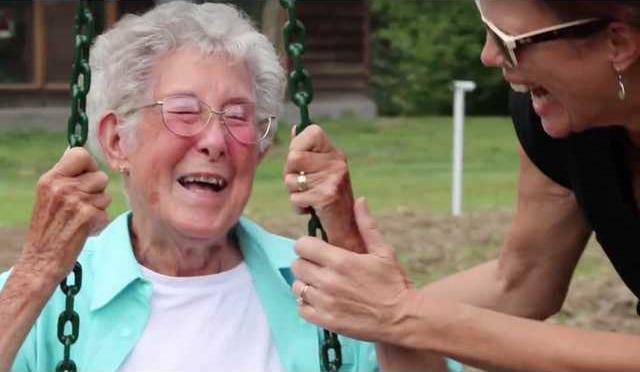Just two days after her husband Leo died, Norma Bauerschmidt was diagnosed with uterine cancer. Instead of receiving chemotherapy, she decided to go on an adventure.
When the doctor asked her how she would like to proceed with chemo, she looked him in the eye and said, Im 90-years-old, Im hitting the road, according to the Facebook page of her adventures, called Driving Miss Norma.
The now 91-year-old woman is traveling the country in a motor home, experiencing as much as she can every day with her son Tim and her daughter-in-law Ramie.
I just wake up every day hoping the day we do have together is the best one I can give her, her son Tim told TODAY in a video about the Driving Miss Norma team.
Bauerschmidt has experienced a variety of adventures including horseback riding, strawberry picking, baseball and basketball games, boat rides, national parks and much more.
She shared her inspiration through it all with TODAY: I believe in God. Thats all there is to it. You got to believe in something, she said.
Watch the video on Facebook here.
When the doctor asked her how she would like to proceed with chemo, she looked him in the eye and said, Im 90-years-old, Im hitting the road, according to the Facebook page of her adventures, called Driving Miss Norma.
The now 91-year-old woman is traveling the country in a motor home, experiencing as much as she can every day with her son Tim and her daughter-in-law Ramie.
I just wake up every day hoping the day we do have together is the best one I can give her, her son Tim told TODAY in a video about the Driving Miss Norma team.
Bauerschmidt has experienced a variety of adventures including horseback riding, strawberry picking, baseball and basketball games, boat rides, national parks and much more.
She shared her inspiration through it all with TODAY: I believe in God. Thats all there is to it. You got to believe in something, she said.
Watch the video on Facebook here.








